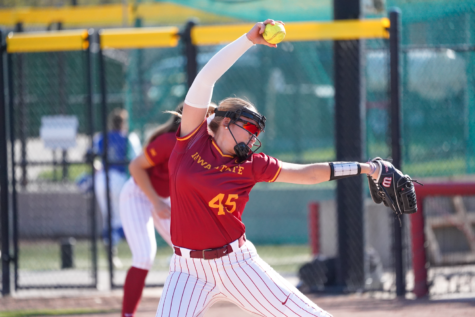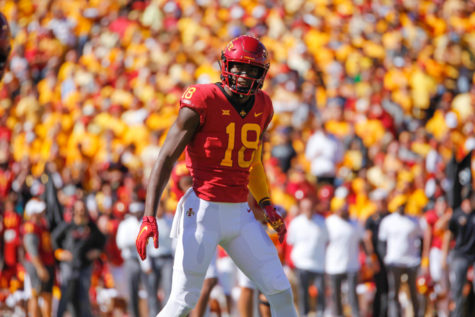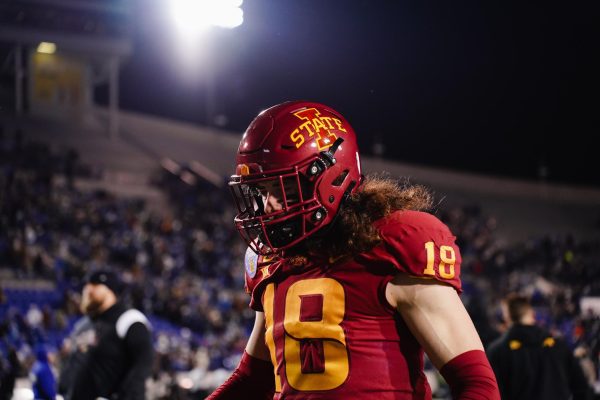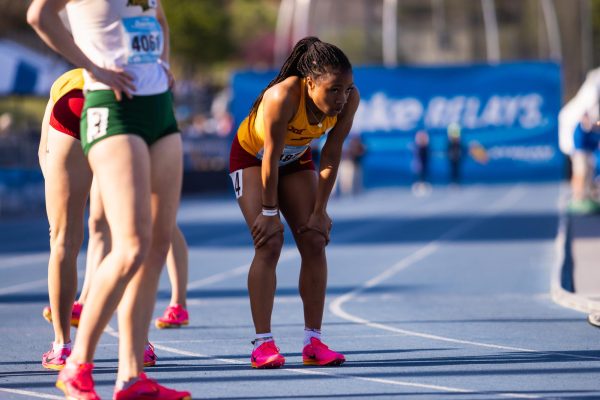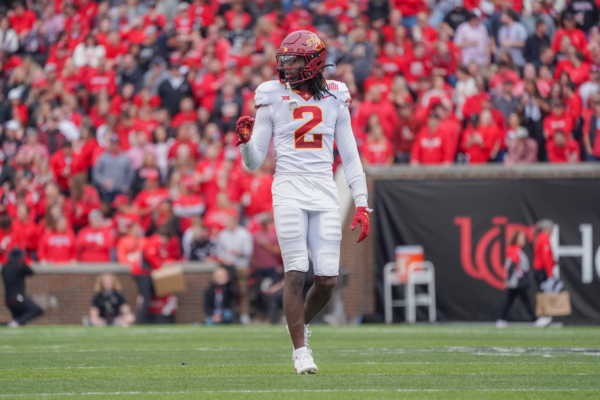Making the most of his opportunities
April 28, 2004
Editor’s note: This is the second in a series of three articles highlighting the accomplishments of the former ISU men’s gymnastics team. The team was founded in 1961 and eliminated in 1994.
When Ed Gagnier was given the chance to join his high school gymnastics team in Windsor, Ontario, he never imagined his career would become so legendary.
As a gymnast, he set numerous records at Michigan and made a trip to the Olympics. As a coach, he produced multiple NCAA team and individual champions. He served on the U.S. Olympic Committee and wrote a book.
Gagnier can attribute a career full of success to two things — opportunity and good fortune.
Starting off with a bang
Gagnier said it all began when he became a member of his high school gymnastics team. He said he was lucky in that the first sport he was introduced to and the sport with which he would fall in love was the sport for which he was most athletically suited.
By his senior year, Gagnier was named Canada’s top junior-level gymnast and was recruited by Michigan.
“I was fortunate that I had the opportunity to start in high school; otherwise, I wouldn’t have gotten a college degree,” Gagnier said.
Gagnier said his family would never have had the money to send him to college to get a degree, and though full-ride scholarships did not exist in those days, he was able to receive enough scholarship assistance from gymnastics to make it work.
Gagnier made the most of this opportunity in a very big way.
After two years of focusing his skills at Michigan, his country called on his service. Canada had never been eligible to field an Olympic gymnastics team before 1956, and that year it was given a spot in competition for one male and one female athlete.
“As a young man representing your country in the Olympics, you feel extremely honored and fortunate to have this extremely valuable experience,” Gagnier said.
“Having had an experience like that, it motivates you and raises your expectations so you can perform at a higher level.”
Even after an all-around Big 10 championship and an injury ended his Michigan career, Gagnier knew he was not finished with the sport of gymnastics.
“[At that time,] I had some premonition that I was going to go on into coaching,” he said.
Coaching a new generation to success
After college, Gagnier set out looking for a college gymnastics coaching position, but with few to be had, Gagnier settled for a high school coaching and teaching position in Wisconsin.
Within two years, his team won the Wisconsin state championships, and a new opportunity presented itself.
Gagnier was offered a position in the physical education department at Iowa State and asked to serve as the school’s new gymnastics coach.
The opportunity was unlike any he had been given before. As the new ISU gymnastics coach, Gagnier faced a major challenge — he had no team.
“He’s competitive, but he’s fair and he’s not a complainer,” Gagnier’s wife, Carolyn, said.
The ISU team started out with no official budget, practicing in a poorly ventilated room underneath the bleachers of Clyde Williams Field.
Gagnier said he never complained about the situation. As he built the team and started to find success, he received more and more financial support from the university and better facilities to practice in.
Gagnier said he started by recruiting gymnasts from the 10,000 members of the ISU student body and went on to recruit heavily in Illinois, where there were many high school gymnastics programs.
“Iowa State was a very good place for me and very satisfying,” Gagnier said. “I always felt like they appreciated and supported my accomplishments in the sport of gymnastics.”
Gagnier said he was able to rope his first athletes in with the sales pitch “there isn’t a team, so you’re guaranteed a spot in the lineup.” As the program developed and found success, he was able to take his recruiting nationwide and recruit state champions instead of settling for the runners-up by offering them experience in national competitions.
“He started out with nothing, but with his drive and his optimism, he knew he could have a good team and win the nationals — that was his goal,” Carolyn said.
Two years after fielding his first team in 1963, Gagnier coached the Cyclones to their first of 10 Big Eight championships.
By 1971, he’d taken the team all the way to the top — NCAA national champions.
“Of course, it’s a well-known fact, you can’t be happy with just one,” Carolyn said.
Throughout the early 1970s, the Cyclones dominated under Gagnier’s direction, winning three national titles and two national runner-up titles.
The key to success
According to his gymnasts, Gagnier’s key to success was his ability to motivate.
“He really made you want to work hard and give 150 percent,” said Ron Gallimore, one of Iowa State’s most successful gymnasts and U.S. Olympic team member.
Gallimore said Gagnier always had a positive outlook, which inspired the team members to do well regardless of how their days had been up until practice.
“He would help motivate me to do what I didn’t think I could do,” Gallimore said.
Gagnier said the only thing to differentiate one talented team from another is how hard it works.
“I had a lot of help. The young men that I worked with always came in with a lot of enthusiasm and a lot of energy, Gagnier said. “It wasn’t that hard to do because they were so fired up and eager to learn.”
“Every little detail that I had to deal with, I always wanted to prove to my gymnasts that I was willing to work harder than anyone else. I wanted them to make sure they felt confident that the Iowa State coach was going to be the hardest-working coach.
“I was the first one in the gym, and the last one to leave.”










